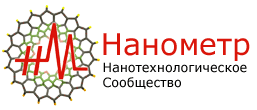CERN60 webcast: Bob Jones "Science and society: the impact of computing at CERN on society"
CERN is often referred to as the place “where the web was born”. The world-wide-web has fundamentally changed society and launched a wave of new global industries. The world-wide-web happened because there was a specific problem that was seen as an Information Technology (IT) challenge by its inventors. As the scientific programme of CERN has progressed, new IT challenges have been faced such as how to handle the mind-boggling amount of data that is produced by the Large Hadron Collider (LHC). Being able to face those challenges has contributed to the success of the LHC and the discovery of the Higgs particle. This public lecture will explore some of those challenges, how they have been tackled and what impact they are having beyond physics and ultimately on society as a whole.
Bob Jones is head of the CERN openlab project (http://openlab.web.cern.ch/) which is a unique public-private partnership between CERN and leading ICT companies. Its mission is to accelerate the development of cutting-edge solutions to be used by the worldwide LHC community. Bob is a member of the management team of the Helix Nebula – the Science Cloud initiative (http://www.helix-nebula.eu/), a public private partnership to explore the use of commercial cloud services for science applications. Bob joined CERN in 1986 as a software developer providing support for the physics experiments running on the now dismantled Large Electron Positron (LEP) particle accelerator. He has been involved in several research projects for the LHC accelerator and has held the position of leader of the online software system for the ATLAS experiment (http://www.atlas.ch/) at the LHC. His experience in the distributed computing arena includes mandates as the technical director and then project director of the EGEE projects (2004-2010 http://www.eu-egee.org), which established and operated a production grid facility for e-Science spanning 300 sites across 48 countries for more than 12,000 researchers.
This lecture is organised within the framework of #CERN60 events http://cern.ch/cern60. It is the second in the series, a recording of the first by Ugo Amaldi "Science and society: the impact of fundamental physics on medicine" is now available via http://cern60.web.cern.ch/en/videos.
For those in the Geneva area, there are a limited number of seats available at the Globe of Science and Innovation. Registration is essential, reserve via +41 22 767 76 76 or cern.reception@cern.ch.

